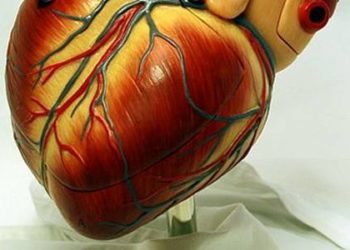Alefacept may be effective therapy in newly diagnosed type 1 diabetics
Image: PD
1. In patients with newly diagnosed type 1 diabetes, treatment with alefacept significantly increased 4 hour C-peptide release and significantly reduced both insulin use and the rate of hypoglycemic events compared to placebo at 12 month follow-up.
2. Alefacept led to decreases in CD4 and CD8 memory T cells with a resultant increase in the ratio of regulatory T cells to memory T cells.
Evidence Rating Level: 1 (Excellent)
Study Rundown: T1DAL is a randomized controlled trial examining alefacept’s ability to preserve pancreatic beta cell function in new-onset type 1 diabetes. Previously used to treat psoriasis, alefacept binds to CD2, a cell surface protein that is highly expressed on memory T cells. The primary endpoint was change from baseline in 2 hour (h) C-peptide levels, determined by assessment of the area under the curve (AUC), at 12 month follow-up. Differences between alefacept and placebo were not significant. However, alefacept significantly increased mean 4 h C-peptide AUC at 12 months and significantly reduced both insulin use and the incidence of hypoglycemia. No significant differences in rates of adverse effects were noted between the treatment and control groups. Flow cytometric analysis revealed decreases in effector and central memory T cells, but not T regulatory cells (Tregs).
While several trials of immunosuppressants have shown evidence of beta cell preservation, alefacept is the first drug to suppress effector and central memory T cells while sparing Tregs. An increased ratio of Tregs to memory T cells might conceivably induce immunologic tolerance. Encouragingly, alefacept has been shown to induce long-term remission in some psoriasis patients. It is unclear how long benefits will persist after alefacept administration. Larger studies with longer follow-up will be needed to confirm drug efficacy and better characterize adverse effects of this immunosuppressant.
Click to read the study in The Lancet
Click to read an accompanying comment in The Lancet
Relevant Reading: Type 1 diabetes: translating mechanistic observations into effective clinical outcomes
Study Author, Professor Rigby, Riley Hospital for Children at Indiana University, USA, talks to 2 Minute Medicine:,
“Alefacept is the first targeted biological drug assessed in patients with new-onset type 1 diabetes that significantly depleted the T cells which attack the pancreas in type 1 diabetes, while preserving other immune cells which are important for pancreatic function. Although the primary endpoint was not met, several key secondary endpoints were significantly different between treatment groups, suggesting that alefacept might preserve pancreas cell function during the first 12 months after diagnosis. Targeting memory T cells might be a useful strategy in type 1 diabetes, but longer follow-up is required to confirm the preliminary signal of efficacy observed at 12 months in the T1DAL trial.”
In-Depth [double-blind randomized controlled trial]: This phase 2 trial randomized 49 patients with type 1 diabetes to either alefacept or placebo. Patients were enrolled within 100 days of diagnosis. Those in the alefacept group received two 12-week courses of weekly intramuscular alefacept with an intervening 12-week pause. The primary endpoint was change from baseline in mean 2 h C-peptide secretion, as measured by AUC, following a mixed meal tolerance test administered at 12 months. Secondary outcomes included change in mean 4 h C-peptide AUC at 12 months, insulin use at 12 months, hypoglycemic events, and HbA1c concentration at 12 months.
At 12 months, the alefacept group had a mean increase in 2 h C-peptide AUC (0.015 nmol/L, 95% CI -0.080 – 0.110) whereas the placebo group had a mean decrease of 0.115 nmol/L (95% CI -0.278 – 0.047). This difference was not significant. However, the increase in mean 4 h C-peptide AUC was significantly greater in the alefacept group (increase of 0.015 nmol/L vs. decrease of 0.156 nmol/L in control group, p=0.019). Compared to placebo, alefacept resulted in significantly less daily insulin use at 12 months (0.36 units/kg vs. 48 units/kg, p=0.02) and fewer hypoglycemic events (10.9 events/person/year vs. 17.3 events/person/year, p<0.0001). Mean HbA1c concentration and side effect frequency and severity did not differ between groups. Five patients in the alefacept group had doses held temporarily when their CD4 counts dropped lower than 250 cells/mL. Flow cytometry revealed reductions of 25-60% in CD4 central memory T cells (p<0.001), CD4 effector memory T cells (p=0.002), and CD8 central memory T cells (p=0.003) at all timepoints examined. However, the frequency of Tregs was unchanged.
By Hayley Walker and Mimmie Kwong
More from this author: Key patient characteristics predict outcomes in children with cardiomyopathy, Remote ischemic preconditioning reduced myocardial injury in CABG patients
© 2013 2minutemedicine.com. All rights reserved. No works may be reproduced without expressed written consent from 2minutemedicine.com. Disclaimer: We present factual information directly from peer reviewed medical journals. No post should be construed as medical advice and is not intended as such by the authors, editors, staff or by 2minutemedicine.com. PLEASE SEE A HEALTHCARE PROVIDER IN YOUR AREA IF YOU SEEK MEDICAL ADVICE OF ANY SORT.






